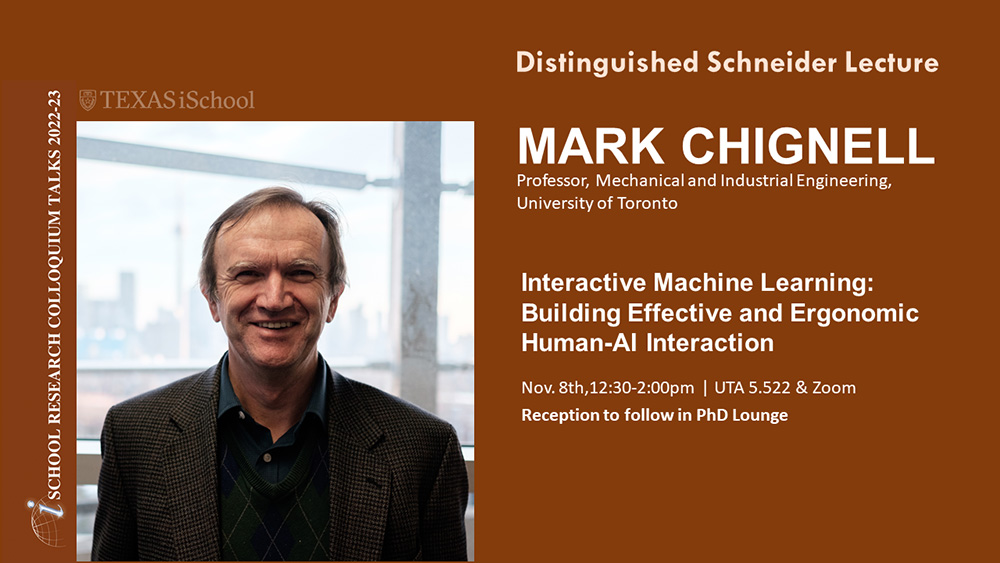
Abstract: Artificial Intelligence (AI) seems like the ultimate two-edged sword, promising to make our lives richer and more convenient while also threatening to make humans redundant and perhaps unnecessary. Can HCI (human-computer interaction) and human factors engineering work together to solve the increasingly urgent challenges of human-AI interaction? In this talk I start by reviewing the history of HCI and Human Factors focusing on their different assumptions about the person (user vs. operator), interaction (discretionary vs. non-discretionary) and method (e.g., task analysis vs ethnography). I then contrast two views of HCI as either user experience design or human augmentation and argue that what we are currently dealing with in the latter view is not human augmentation, but rather AI augmentation, where humans help AI systems to be smarter. After setting the historical and theoretical context I then introduce current approaches to interactive machine learning, where humans facilitate machine learning based prediction and classification in various ways. I illustrate the challenges and opportunities of interactive machine learning with two case studies, one in the area of healthcare and the other in the area of cybersecurity. In the healthcare case study I introduce the idea of physician experience design (PXD) where methods and user interfaces are developed for allowing physicians to interact with machine learning systems more effectively, and to have a better understanding of machine learning outputs and the reasoning behind them. I will then show examples of PXD in the application areas of predicting presence of delirium, assessing which antidepressants work best for which types of patient, and identifying behavioural risk factors for various diseases. In the cybersecurity case study I will focus on how to make human training of AI systems for anomaly detection more effective using an active learning approach. I will introduce the idea of information gain as a way of identifying when human inputs to an ML system will be most useful. I will conclude the talk with a discussion of future research issues in human-AI interaction and the need for more effective collaboration between human factors and HCI in order to address human-AI interaction challenges.
Bio: Mark Chignell has a Ph.D in Psychology 1981 (University of Canterbury, New Zealand) and a Masters in Industrial and Systems Engineering (The Ohio State University, 1984). He is a Professor of Mechanical and Industrial Engineering at the University of Toronto, where he has been since 1990. He carries out research in human factors and user interface design, with particular interest in healthcare, cybersecurity, and aging. In 2016 he founded Centivizer Inc., which develops technologies that promote physical and cognitive activation for older people. Centivizer products are currently used in a range of institutions in five Canadian provinces.
Reception to follow in the Martha Lee Pattillo Siv doctoral student lounge (5th floor of UTA).

